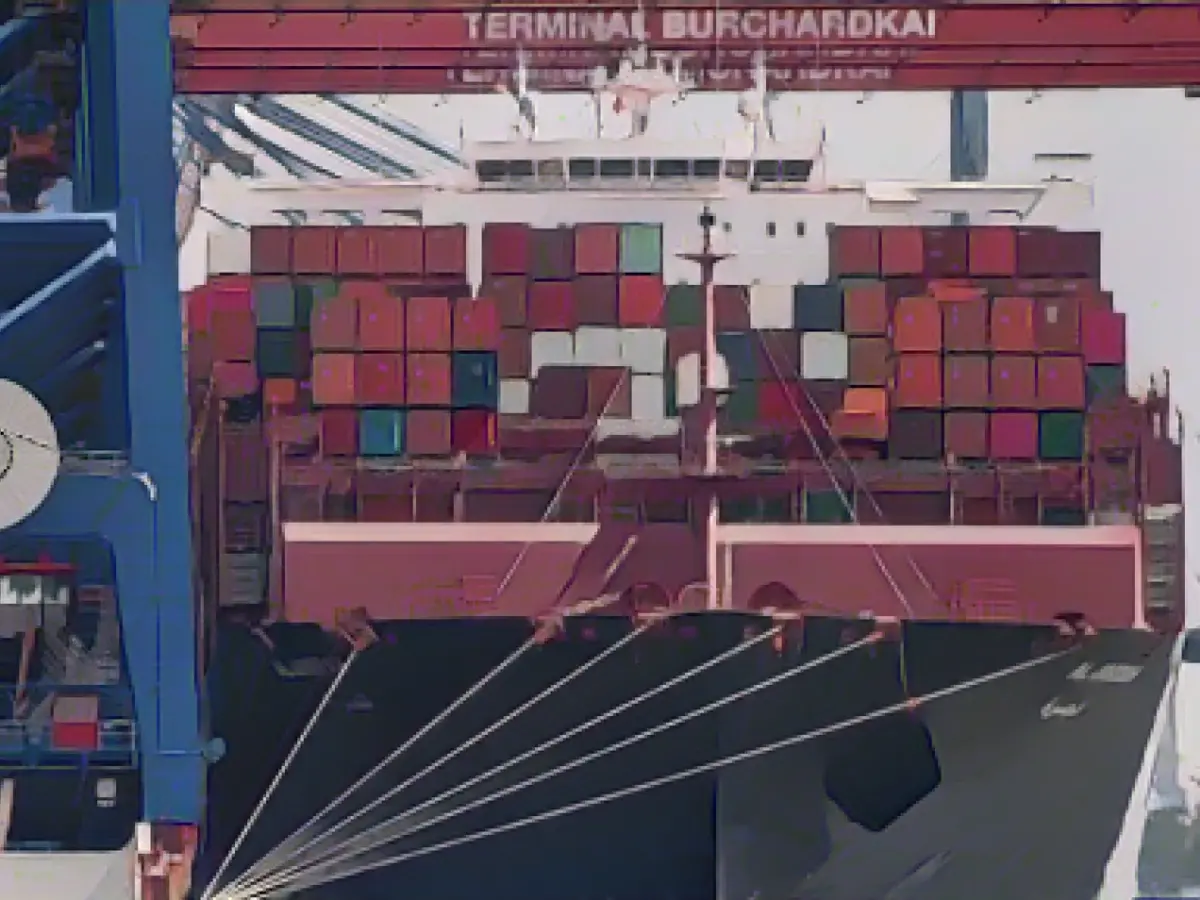Global Trade Disruption: Red Sea and Suez Canal Under Threat
The Red Sea has become a hotspot of concern for global shipping due to recurring attacks by Yemeni Houthi rebels. On Monday, the Suez Canal, a crucial artery for global shipping, was closed to major companies. In response, they've begun sailing around the Cape of Good Hope at Africa's southern tip, adding over 6,000 kilometers to their journey, according to Vincent Stamer, a global trade expert from the Kiel Institute for the World Economy (IfW).
Hapag-Lloyd, one of Germany's renowned container shipping companies, has chosen to sidestep the Suez Canal until safety assurances for its ships and crew are guaranteed. The company is bypassing the dangerous waters of the Red Sea, opting instead for the extended coastal journey. Meanwhile, the industry leader MSC confirmed that it would not sail its ships through the Suez Canal until the Red Sea becomes safer.
The unplanned detour around Africa can cause delivery delays, with estimates ranging from a few days to two weeks. Stamer, who tracks global shipping movements in real-time, estimates that ships may experience a ten-day delay. However, he emphasizes that there won't likely be any significant disruptions to global supply chains, as was the case during the coronavirus pandemic.
Hapag-Lloyd also clarified that comparing the current situation with the coronavirus pandemic is challenging due to the unique circumstances. They highlighted that long-term supply chain bottlenecks due to increased durables demand from the Far East and lockdowns are not expected as a result of the Red Sea detour.
Though freight rates in container ship networks might edge up a tad, prices for transporting goods by sea have dropped significantly since the pandemic peak. Stamer noted that transportation costs from Asia to Europe constitute only 2% for the most affordable goods.
The unrest in the Middle East has resulted in recurrent Houthi attacks on ships in the Red Sea to prevent them from sailing towards Israel. Recently, Hapag-Lloyd's container freighter "Al Jasrah" and the "MSC Palatium III" were damaged in these attacks, contributing to sharper concerns regarding safety in the region.
Key Insights
- The Houthi attacks have seen a notable decrease in vessels crossing the Suez Canal, from 41 daily to 26 vessels, marking a 37.4% decrease.
- The increased rerouting of ships to avoid the Red Sea has resulted in longer transit times and higher costs, with long-range tankers facing an additional $200,000.
- The Houthi's 122% increase in container shipping costs and soaring insurance premiums have put additional strain on global supply chains.
- The increased transit costs and risks have caused oil transport volumes to decrease significantly, impacting global energy markets.
- Although the Houthi rebels have announced a halt to attacks on commercial vessels, doubts and cautiousness remain, leading many shipping companies to maintain alternative shipping routes.
- The impact of these disruptions on global trade could lead to a long-term 22% increase in container prices, subject to future incidents.
[2] (https://www.berenberg.com/global-trade-impact-of-the-suez-canal-blockage-495350) [3] (https://www.seatrade-maritime.com/maritime/ceasefire-and-suez-canal-reopening-critics-and-cautious-optimism-abound) [4] (https://maritime-executive.com/article/suez-canal-closure-assessing-the-impact-on-the-oil-market)








